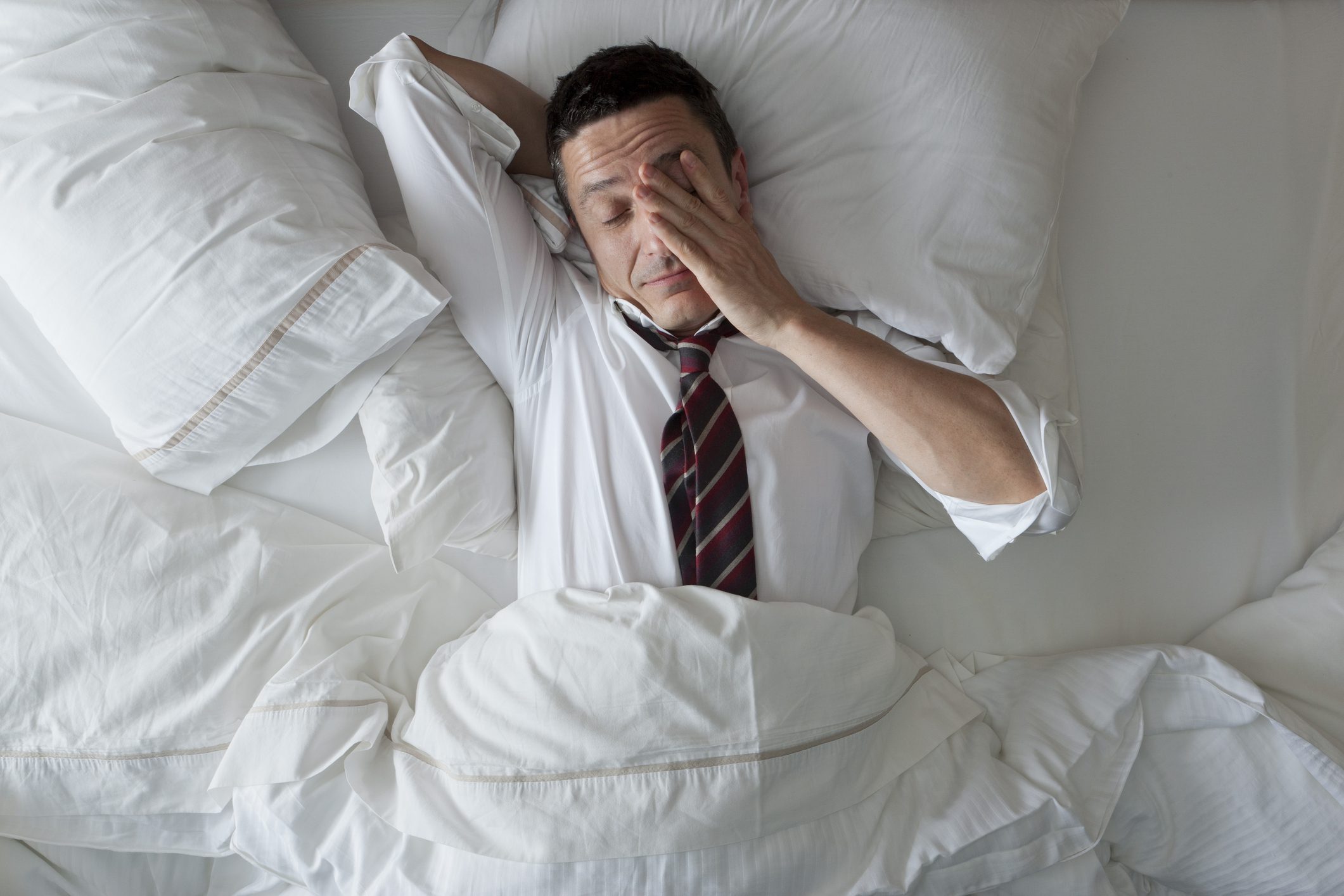For anyone that’s had to deal with a forced office closure due to COVID-19, it’s likely that you’ve traded an open-floor office plan for a bedroom that consists of a stack of books serving as a makeshift desk. When we first began the Working From Home revolution, the alarm was set early, our grooming was impeccable and the allure of a home office was enough to see us dress the part. Now though, it’s all we can do but comb the breadcrumbs out of our beards for the morning Zoom call and change out of a stained crewneck and matching sweats that we’ve been living in for the past several months.
It’s easy to see then, just how many of us have traded a desk for a laptop propped up on a pillow on our bed. WFH has quickly become Working From Bed (WFB) and, according to one November 2020 study conducted in the United States, 72 per cent of the 1,000 Americans surveyed said they had worked remotely from their bed during the pandemic – a 50 per cent increase since the start of the crisis. One in 10 even reported spending “most or all of their workweek” in bed, something that is particularly prevalent amongst young workers aged 18 to 34.
The comfort of a warm bed might seem like the perfect work arrangement, but as you’d expect, it’s not exactly the healthiest option. Now, scientists are warning of the health issues – both psychological and physical – that can arise should you continue to work from the comfort of your own mattress.
Ergonomics
Whether the bed is the only place you can work in a lively flat full of other people trying to navigate the working from home situation, or you simply just prefer the bed to the living room or kitchen bench, experts advise that it’s not good for the body.
Your neck, back, hips and more are all strained when on the soft surface, which encourages you to slump. You might not feel the strain straight away, but it will flare up down the road. It could be as simple as headaches, before extending to stiffness in your back, arthritis, and cervical pain felt in bones, ligaments, and muscles in your neck that allow motion.
But if working from bed just isn’t avoidable, you can take some measures to enhance the experience – at least health-wise. Experts suggest trying to recreate the experience of sitting upright in a chair and aiming for “neutral posture”. You can roll up a pillow and stick it under your lower back for lumbar support. Pillows under the knees also help, but above all, avoid lying on your stomach to type as this will strain your neck and elbows.
How To Set Up Your Work From Home Space
Disrupted sleep schedule
When working from bed, you have the potential to completely disrupt your sleep habits. This happens because rather than associating the bed solely with sleep, you’re now training the brain to recognise this space as a place of work. It means that, when it does come time to sleep, the brain can go into overdrive and be able to shut off work thoughts. Sleep specialists suggest going by the rule of the three Ss when it comes to the bedroom: sleeping, sex, or for when you’re sick. When you begin to watch TV in bed, play games in bed or simply not sleep in your bed, the brain begins building these associations and eventually, they evolve into conditioned behaviours.
Working in bed for an extended period could lead to insomnia or circadian rhythm disorder, when the body’s natural clock is completely thrown out of whack. To combat this, begin to practice good sleep hygiene. Get out of the bedroom when it comes to work, and the same goes for all your appliances with their bright lights and glowing screens. Evens something as simple as a bedtime routine – a cup of tea or reading – can tell the body it’s time to wind down as you get ready to sleep.
Better to be safe than sorry
While some might claim they are yet to experience such health issues associated with WFB, it’s likely that they will catch up to you eventually. If COVID-19 has taught us anything, it’s that our health is our biggest priority and it’s time we started showing up for it. Likewise, it’s better to be safe than sorry and if you can trade the bed for a desk somewhere in another part of the house, it would be wise to do so.














